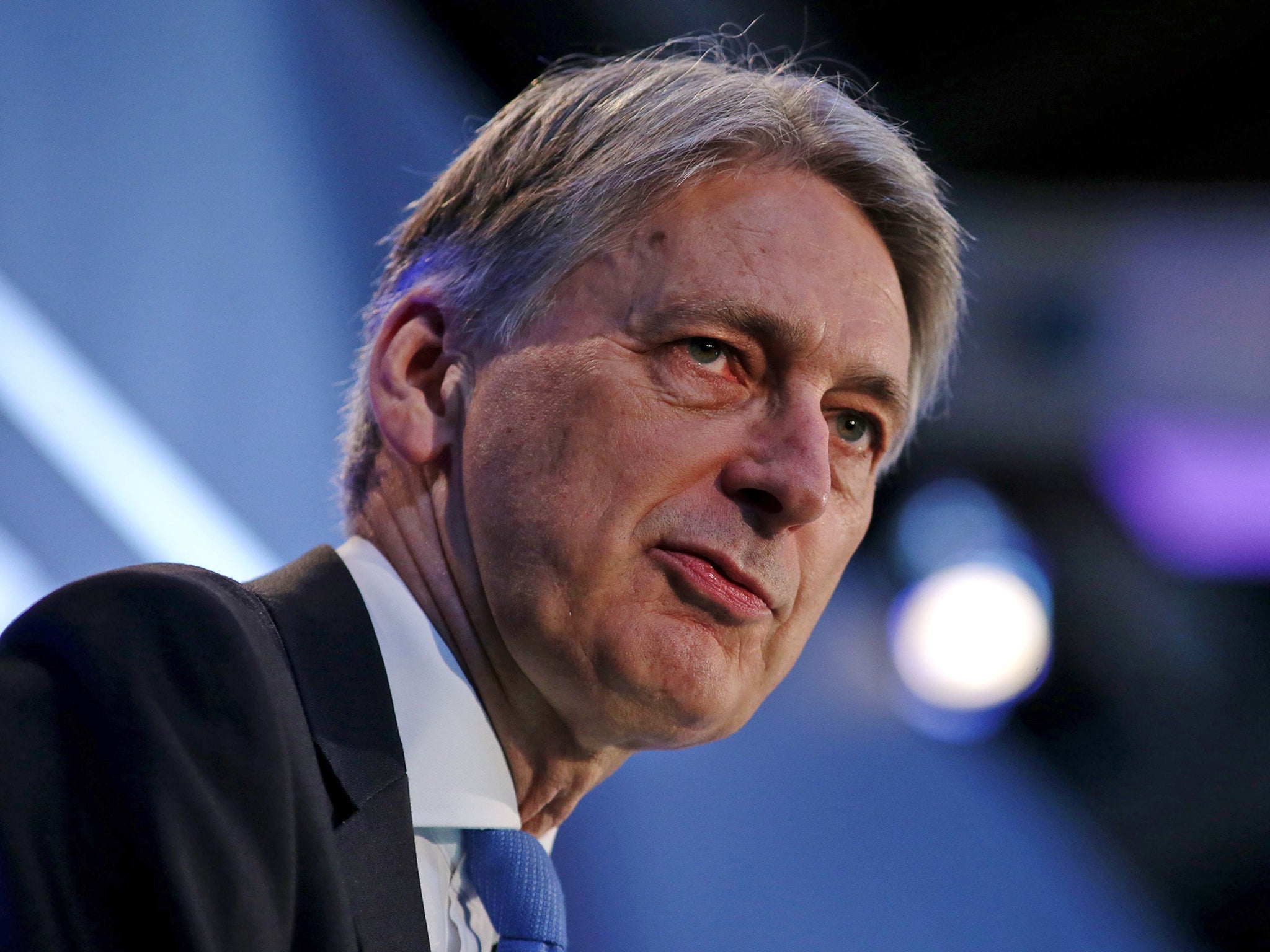Public borrowing in May falls to 13-year low, giving boost to Philip Hammond
The government borrowed £5bn to balance the books last month, less than the £6.3bn predicted by economists and lower than in any May since 2005

Philip Hammond has been given a boost after official figures revealed the public finances are in better shape than had first been thought.
Public sector net borrowing was £5bn last month, less than the £6.3bn predicted by economists and lower than in any May since 2005, the Office for National Statistics revealed.
The numbers will give the chancellor some wiggle room in his next budget and help the government towards meeting its commitment to increase NHS spending after years of real-terms cuts.
Much of the slowdown in borrowing was due to tax receipts growing 3 per cent. Borrowing in April and May was £11.8bn, a total of £4.1bn less than in the same period in 2017 and the lowest at this point in the year since 2007.
The ONS also revised down borrowing for 2017/18 to £39.5bn from £40.5bn, meaning a deficit of 1.9 per cent of GDP, the lowest since 2001/2. The UK’s public sector net hit £1.78 trillion by the end of May, or 85 per cent of GDP.
While the news will be welcomed by the Treasury, economists greeted it with a mixed reaction.
Samuel Tombs, chief UK economist at Pantheon Macroeconomics, said that while the headline borrowing figures “look fantastic”, the rate of improvement will not be sustained.
“Central government tax receipts rose by just 3 per cent year over year in April, below the 3.6 per cent full-year increase predicted by the OBR. Lower-than-anticipated borrowing is not a sign of a healthy economy,” he said.
Howard Archer, chief economic adviser to the EY Item Club, was more positive. He said: “The lower May deficit boosts hopes that the economy has gained significant momentum in the second quarter after a poor first-quarter performance which was seemingly only partly due to the severe weather in late February and March.”
Subscribe to Independent Premium to bookmark this article
Want to bookmark your favourite articles and stories to read or reference later? Start your Independent Premium subscription today.

Join our commenting forum
Join thought-provoking conversations, follow other Independent readers and see their replies